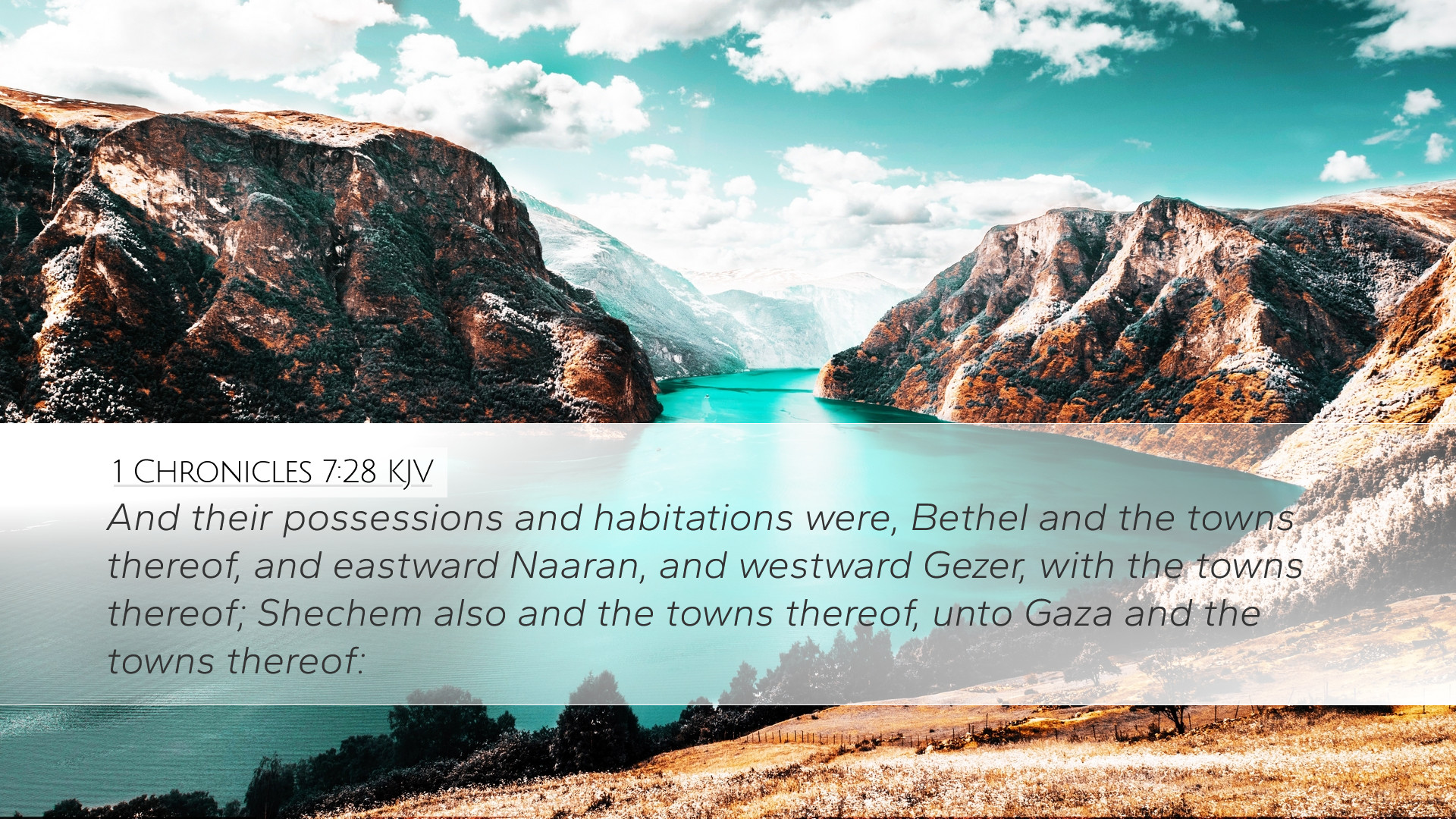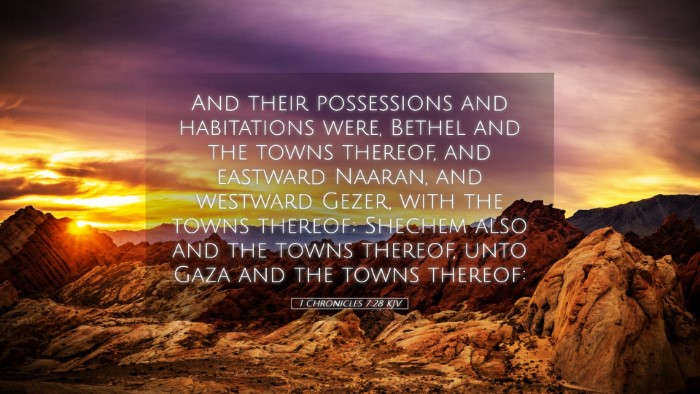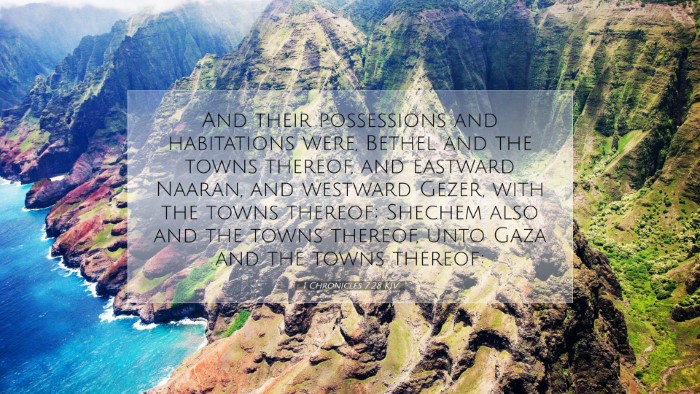Commentary on 1 Chronicles 7:28
1 Chronicles 7:28 states: "And their possessions and habitations were in the cities of Ephraim and in the suburbs of the city." This verse offers a brief but meaningful glimpse into the familial and territorial organization of the tribe of Ephraim, particularly in relation to the descendants of Joseph, one of the twelve patriarchs of Israel.
Contextual Background
The historical context of 1 Chronicles is pivotal. It was written to provide a genealogical record of Israel, emphasizing the significance of tribes, their territories, and their blessings. The author focuses on the importance of the priestly line, the kings of Israel, and the heritage of the tribes, which reveals God’s faithfulness to His promises.
The Historical Significance of Ephraim
- Tribal Significance: Ephraim was a dominant tribe in the Northern Kingdom of Israel, which played a crucial role in its history and politics.
- Joseph's Inheritance: Joseph, being one of the sons of Jacob, received a unique blessing, resulting in a double portion through his two sons, Ephraim and Manasseh.
- Geographical Location: The mention of their possessions in the cities of Ephraim highlights their inheritance and God's provision for His people.
Theological Insights
This verse encapsulates several theological themes that are significant for pastors and theologians.
Divine Providence and Inheritance
As Matthew Henry points out, the allotment of land reflects God’s providence in the lives of His people. The possession of land symbolizes blessing and security and is a physical reminder of God’s covenant promises to Israel.
The Importance of Heritage
Albert Barnes emphasizes the notion of heritage and identity amongst God’s people. The significance of what is passed down through generations—both spiritually and physically—is highlighted here. Pastors can draw parallels to how believers today are called to uphold their spiritual heritage.
Community and Belonging
Adam Clarke notes the communal aspect of possession in Israelite society. The “cities and suburbs” signal the importance of living in a community that nurtures faith. This calls to mind the modern church's need to foster a sense of belonging among its members.
Practical Applications
There are several practical applications that emerge from 1 Chronicles 7:28 for today's believers:
- Recognition of God’s Blessings: Just as the tribes of Israel recognized their blessings in land and heritage, modern believers are called to recognize God’s providences in their lives.
- Maintaining Community: Emphasizing the role of community in spiritual nurture suggests that churches should work towards fostering authentic fellowship and support.
- Appreciating Our Heritage: Reflecting on one's spiritual heritage can encourage faithfulness and growth in spiritual disciplines.
Conclusion
1 Chronicles 7:28 serves as a concise yet profound reminder of God's faithfulness across generations. The verse not only speaks about land and possessions but also symbolizes God's enduring covenant with His people and the importance of community and heritage in the life of faith. Pastors, students, and theologians alike can draw from its rich implications for understanding God’s ongoing work in the lives of His people today.


